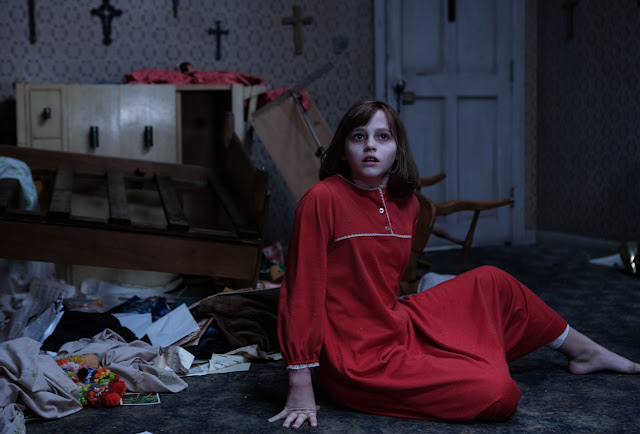“Timely topic and good actors do not always make a good
movie.”
Weddings are emotional moments and they can provide reconciliation
and closure even to the sourest relationships. In Mary Agnes Donoghue’s
coming-out dramedy Jenny’s Wedding, her second directorial feature since
1991’s tear-jerking Paradise, the writer-director
tells how a Midwestern wedding reunited a family estranged by traditions,
shame and gender issues.
Jenny (Katherine Heigl), a thirtyish pretty and perfect
Cleveland woman who works as a social worker, returns home for a baby’s christening.
As always, fireman dad Eddie (Tom Wilkinson) and soap opera fanatic mom Rose
(Linda Emond) pries about her love life while brother Michael (Matthew Metzger)
goes through the skit of setting her up with a friend. When she hints about a
vague relationship, nosy sister Anne (Grace Gummer) assumes she is involved
with a married man and the idea immediately spread like wildfire in their backward-living
neighborhood.
When her dad gives her a pep talk about the happiness of a
married life and starting one’s own family, Jenny is encouraged to tie the knot
with her five-year partner Kitty (Alexis Bledel) who everybody assumes to be
just her roommate. Her family have varied reaction to her revelation. While Michael
confesses that he had always suspected it, Anne is angered with her secrecy. Her
parents, uneasy and in denial, is more concerned about what others have to say,
particularly Rose’s meddling best friend (Diana Hardcastle) and Eddie’s long-time
friend and co-worker (Sam McMurray). When they ask her to keep it hidden, Jenny
fumes about it. Resolutely, she continues to plan for her big wedding day to
come.
Jenny’s Wedding
is a sweet and well-meaning Hallmark-like film. However, the movie is too lazy
to be a laughable comedy, but too sappy to be a weepie drama. It has an
intriguing subject matter that gets lost in an outdated narrative filled with
off-key pop music. It’s annoying when a loud song suddenly bursts in when
moments are teary or self-reflecting.
In essence, the movie is actually about secrets and bigotry.
Afraid that people will change how they see her, Jenny opts for a closeted
life. Her fear is realized when her parents are less accepting with the truth. Apparently,
the film is geared towards audience who share the same views. Though honourable
and well-mannered, Jenny’s parents and similar people needs enlightenment and
lectures on tolerance. However, the film is quite preachy, speechifying with clichés
and generic lines. As it dwells more on Jenny’s family and her upcoming
wedding, the movie is less probing on her relationship with Kitty. In effect,
Jenny appears bland, Kitty irrelevant, and the wedding forced and less sincere.
The film remains watchable because of the solid performance
of its cast. Gummer, Meryl Streep’s daughter, has a radiant and captivating
presence in her supporting role as Anne. Wilkinson is tender as the reluctant father
while Emond exudes the vulnerability of a confused mother. In spite of her
single-dimensional character, Heigl delivers a mix of sensitivity and anger as
Jenny but mostly in pained expression. Her moments with Emond are stirring and
feel authentic.
Despite its decent
intentions, Jenny’s Wedding is
old-fashioned and simplistic. Its weak plot simply embarks on a timely and controversial
topic. While its theme songs punctuate scenes in an irritating fashion, the
moving delivery of its actors carries the film throughout.


























0 comments:
Post a Comment